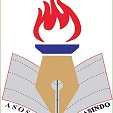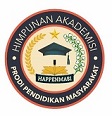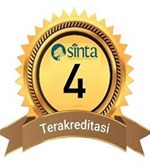PENGARUH MINAT BACA TERHADAP HASIL BELAJAR PKN KELAS VII
Abstract
Abstrak: Penelitian ini bertujuan untuk mengetahui pengaruh minat baca terhadap hasil belajar siswa pada mata pelajaran pendidikan kewarganegaraan di Sekolah Menengah Pertama (SMP) Negeri 1 Praya Timur. Metode yang digunakan dalam penelitian ini adalah metode survei dengan pendekatan kuantitatif deskriptif. Populasi dari penelitian ini adalah siswa kelas VII SMP Negeri Negeri 1 Praya Timur tahun pelajaran 2020/2021 sejumlah 108 orang. Teknik pengumpulan data menggunakan observasi (pengamatan), kuesioner (angket), wawancara dan dokumentasi. Observasi dan dokumentasi digunakan untuk melakukan pengamatan dan mendata jumlah siswa. Angket digunakan untuk mengungkap pengaruh variabel minat baca terhadap hasil belajar siswa. Sedangkan wawancara digunakan untuk memperkuat metode angket dalam mengetahui jawaban siswa mengenai pengaruh minat baca terhadap hasil belajar yang sesuai dengan kondisi sesungguhnya. Uji validitas instrumen menggunakan korelasi Product Moment, dan uji reliabilitas mengunakan rumus Alpha Cronbach’s dengan jumlah responden 69 orang siswa. Uji prasyarat analisis terdiri dari uji normalitas dan uji homogenitas. Teknik analisis data penelitian ini adalah regresi linier sederhana. Hasil penelitian ini menunjukkan bahwa minat baca memiliki pengaruh yang cukup rendah terhadap hasil belajar dengan hasil 36,8% dan 63,2% dipengaruhi oleh faktor lain, yang terdiri dari faktor intern seperti faktor kepribadian individual dan faktor ekstern seperti faktor dorongan orang tua, faktor teman sebaya, faktor guru, faktor metode pembelajaran, faktor lingkungan dan perkembangan tekhnologi.
Kata kunci: Minat baca, hasil belajar, pendidikan kewarganegaraan
Abstract: This study aims to determine the effect of reading interest on student learning outcomes in the subject of civic education at the Junior High School (SMP) Negeri 1 Praya Timur. The method used in this research is a survey method with a descriptive quantitative approach. The population of this study was the seventh grade students of SMP Negeri 1 Praya Timur in the academic year 2020/2021 with a total of 108 people. Data collection techniques using observation (observation), questionnaires (questionnaire), interviews and documentation. Observations and documentation are used to make observations and record the number of students. The questionnaire used to reveal the effect of reading interest variables on student learning outcomes. While that is used to strengthen the questionnaire method in knowing an explanation of the effect of reading interest on learning outcomes in accordance with actual conditions. The instrument validity test used Product Moment correlation, and the reliability test used Cronbach's Alpha formula with 69 students as respondents. The analysis prerequisite test consists of a normality test and a homogeneity test. The data analysis technique of this research is simple linear regression. The results of this study indicate that reading interest has a fairly low influence with 36.8% learning outcomes and 63.2% is influenced by other factors, which consist of internal factors such as individual personality factors and external factors such as parental factors, peer factors. , teacher factors, learning methods factors, environmental factors and technological developments.
Keywords: Reading interest, learning outcomes, civic education
Full Text:
PDFReferences
Bungin, M. Burhan. Metodologi Penelitian Kuantitatif: Komunikasi, Ekonomi, dan Kebijakan Publik Serta Ilmu-ilmu Sosial Lainnya. Jakarta: Kencana, Cet. V, 2010.
Dimyati, Midjiono. Belajar dan Pembelajaran. Jakarta: Rineka Cipta, 2006.
Jarolemek. J. & Clifor, D. Foster (1981). Model of teaching. New Yersey: Englangwood Cliff Prenticehall Inc.
Nata, Abudin. Perspektif Islam Tentang Strategi Pembelajaran. Jakarta: Kencana, 2011.
Siregar, Syofian. Statistik Parametrik Untuk Penelitian Kualitatif: Dilengkapi Dengan Perhitungan Manual dan Aplikasi SPSS Versi 17. Jakarta: Bumi Aksara, Cet. I, 2013.
Skiner Caarles, E. (2004). Educational psychology. New Delhi: Prentice-Hall of India Private Limited.
Squires, David, A., Huitt, William, G., and Segars, John, K. (1983). Effective schools and classrooms: a research-based perspective. North Washington Street Alexandria, Virginia: ASCD.
Sugiyono. Metode Penelitian Pendidikan: Pendekatan Kuantitatif, Kualitatif, dan R&D. Bandung: Alfabeta Bandung, Cet. XV, 2012.
Zuriah, Nurul. Metode Penelitian (Sosial dan Pendidikan). Jakarta: PT Bumi Aksara, 2007.
DOI: https://doi.org/10.33394/jtni.v7i1.4122
Refbacks
- There are currently no refbacks.
Copyright (c) 2021 Transformasi : Jurnal Penelitian dan Pengembangan Pendidikan Non Formal Informal
This Journal has been Indexed by:
Jurnal Transformasi
ISSN: 2442-5842 (Print)
ISSN: 2962-9306 (Online)
Published by Program Pendidikan Luar Sekolah, FIPP
Universitas Pendidikan Mandalika
Email: [email protected]
No. WhatsApp: 087863548098

This work is licensed under a Creative Commons Attribution-ShareAlike 4.0 International License.















